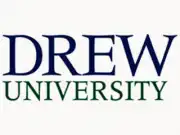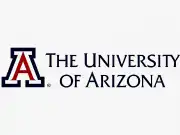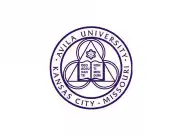Science and Engineering Programs in the USA for International Students
- Advantages of Studying Natural and Exact Sciences Programs in the USA
- Formats and Levels of Natural and Exact Sciences Programs in the USA
- Top Universities for Natural and Exact Sciences in the USA
- How to Apply to Natural and Exact Sciences Programs in the USA
- Required Documents for Natural and Exact Sciences Programs in the USA
- Tuition Fees for Natural and Exact Sciences Programs in the USA
- Scholarships and Grants for Natural and Exact Sciences Programs in the USA
- Career Prospects and Internships after Studying Natural and Exact Sciences in the USA
- FAQ – Frequently Asked Questions

Bachelor of Science - Statistics
Drew UniversityExplore the fundamental principles of statistics through hands-on experiences with computational and quantitative techniques such as data collection, organization, modeling, analysis, summarizing, and visualizing in order to make well-founded inferences or predictions and draw meaningful conclusions.…

Bachelor of Science - Applied Biotechnology
The University of Arizona, USAStudents pursuing a B.S. in Applied Biotechnology learn how to apply chemical and biological processes to solve the most important problems facing sustainability, health, and food production worldwide. A strong foundation in microbiology, plant biology, food science, and nutrition will be developed,…

Bachelor of Science - Applied Biotechnology: Food and Beverage Fermentation Emphasis
The University of Arizona, USAUtilize biological processes or living cells to create technology and food and beverage products that enhance both human well-being and the condition of the earth. There are numerous uses for the Bachelor of Science in Applied Biotechnology with a focus on Food and Beverage Fermentation, including…

Bachelor of Science - Applied Biotechnology: Industrial Plant and Microbial Biotechnology
The University of Arizona, USAUtilize microorganisms or plants to create goods and technology that enhance our lives' quality and the earth's condition. Numerous industries, including agriculture, food processing, medicine, and the industrial production of biomolecules, biofuels, and other chemicals, can benefit from the Industrial…

Bachelor of Arts - Applied Humanities: Environmental Systems
The University of Arizona, USAExamine issues of meaning, culture, and community-building/serving about environmental impact and change. Understand how ecological science relates to the memories, rituals, beliefs, and physical and mental habits that either support or undermine the well-being of people, groups, and organizations.

Bachelor of Arts - Applied Humanities: Plant Studies
The University of Arizona, USAThere are fantastic educational and career prospects in the humanities and plant sciences intersection because of shifting cultural views and practices, continuous scientific advancement, and recent technological and commercial innovation. Commercial areas experiencing great growth both domestically…

Bachelor of Science - Biology
Avila UniversityAdvantages of Studying Natural and Exact Sciences Programs in the USA
The USA is a global leader in the field of natural and exact sciences. The country's universities offer advanced educational programs that combine fundamental knowledge with practical training and innovation. International students choose the USA for its unique development opportunities, modern laboratories, research grants, and close collaboration with industrial companies and scientific institutes.
Why Choose the USA:
- Quality of Education: American universities are ranked among the top in global rankings (e.g., QS and THE) due to their high academic standards.
- Research Base: More than 70% of scientific research at universities is funded by the government and private companies.
- Flexible Program Structure: The ability to choose courses in various fields and tailor the program to your interests.
- International Recognition of the Degree: Graduates of American universities are in demand worldwide.
- Innovative Environment: Technology hubs such as Silicon Valley and the Boston science cluster create opportunities for internships and startups.
Formats and Levels of Natural and Exact Sciences Programs in the USA
The US education system offers various levels of training suitable for recent high school graduates as well as those who already have higher education.
Main Program Levels:
- Undergraduate (Bachelor's): 4 years of study. Upon completion, a Bachelor of Science (BS) degree is awarded in the selected field.
- Graduate (Master’s): 1–2 years. Master of Science (MS) degree.
- PhD (Doctorate): 4–6 years. Includes coursework, exams, and research work.
Study Formats:
- Full-time
- Part-time
- Online programs, including blended
- Certificate and short-term programs — for deepening knowledge in a specific area
Top Universities for Natural and Exact Sciences in the USA
Below are leading, yet realistically accessible universities for international students:
| University | Specialization | Acceptance Rate |
|---|---|---|
| University of California, Berkeley | Chemistry, Physics, Biology, Mathematics | ~15% |
| University of Illinois Urbana-Champaign | Computer Science, Mathematics | ~63% |
| University of Wisconsin–Madison | Biology, Ecology, Engineering | ~57% |
| Georgia Institute of Technology | Physics, Applied Mathematics | ~36% |
| Pennsylvania State University | Earth Sciences, Chemical Engineering | ~56% |
How to Apply to Natural and Exact Sciences Programs in the USA
- Select a university and program.
- Take exams: SAT/ACT for undergraduate, GRE/GMAT for graduate, IELTS/TOEFL/Duolingo to prove English proficiency.
- Prepare documents.
- Submit the application through the university website or CommonApp.
- Interview (if required).
- Await decision.
Application deadlines: from October to January (for fall intake).
Required Documents for Natural and Exact Sciences Programs in the USA
- High school diploma or bachelor's degree (with notarized translation and certification)
- Academic transcript
- Exam certificates (SAT, GRE, TOEFL, etc.)
- Recommendation letters (2–3)
- Motivation letter or essay
- Resume (for graduate and doctoral programs)
- Portfolio (for technical disciplines or research)
Cost of Studying Natural and Exact Sciences Programs in the USA
| Type of Institution | Annual Cost (USD) |
|---|---|
| Public University (in-state) | $15,000 – $25,000 |
| Public University (out-of-state) | $25,000 – $40,000 |
| Private University | $40,000 – $70,000 |
Additional Expenses:
- Housing and meals: $10,000 – $15,000 per year
- Health insurance: $1,000 – $2,000
- Study materials and transport: $1,000 – $2,500
Scholarships and Grants for Natural and Exact Sciences Programs in the USA
Funding Options:
- Government:
Full-grant foreign student programs — for master’s and PhD - University-based:
Merit-based and Need-based scholarships
Assistantships (Graduate assistant / Research assistant) - Corporate:
Google Scholarship
IBM PhD Fellowship
Selection Criteria:
- High academic performance
- Active participation in research
- Social involvement, leadership
Deadlines:
From October to February depending on the program
Career Prospects and Internships after Studying Natural and Exact Sciences in the USA
American universities provide strong career support:
- Career centers help with resumes, job search, and interview preparation
- Internship and co-op programs as part of studies
- Optional Practical Training (OPT): up to 12 months of internship, up to 36 months for STEM fields
Popular employers of graduates:
- NASA
- Amazon
- Pfizer
- Intel
FAQ – Frequently Asked Questions
- Can I apply without SAT/GRE to Natural and Exact Sciences Programs in the USA?
Yes, some universities have waived mandatory exams. However, submitting scores can increase your chances of admission and scholarships. - How difficult is it for international students to get accepted to Natural and Exact Sciences Programs in the USA?
The competition level is high, especially at top universities. But with solid preparation and strong application documents, admission is entirely possible. - Which fields are the most promising in Natural and Exact Sciences Programs in the USA?
Data Science, Biotechnology, Artificial Intelligence, Ecology, and Sustainable Development. - What is the minimum English proficiency required for Natural and Exact Sciences Programs in the USA?
Minimum required: TOEFL 80+, IELTS 6.5+, or Duolingo 110+ in some cases. - Can I work while studying in Natural and Exact Sciences Programs in the USA?
Yes, up to 20 hours per week on campus during semesters and up to 40 hours during breaks. - What is STEM and why is it important in the USA?
STEM — Science, Technology, Engineering, Mathematics. STEM programs allow for extended internships under the F-1 visa in the USA. - When should I start preparing for admission to Natural and Exact Sciences Programs in the USA?
Preferably 12–18 months before your intended start date to have enough time for exams and document preparation. - What careers are available after graduating from Natural and Exact Sciences Programs?
In-demand careers include Data Analyst, Research Engineer, Chemist, Bioinformatician, Sustainability Specialist, Research Scientist, and others. - How do I choose a major in Natural and Exact Sciences if I’m still undecided?
The US system allows you to enroll in a general track (e.g., General Science) and choose a specialization by the 2nd–3rd year. This gives time to explore disciplines like biology, physics, ecology, and mathematics before deciding. - Does participation in research projects and competitions affect admission to Natural and Exact Sciences Programs in the USA?
Yes, especially for top universities. Participation in scientific conferences, publications, and winning academic competitions can significantly strengthen your application by demonstrating motivation and academic engagement.